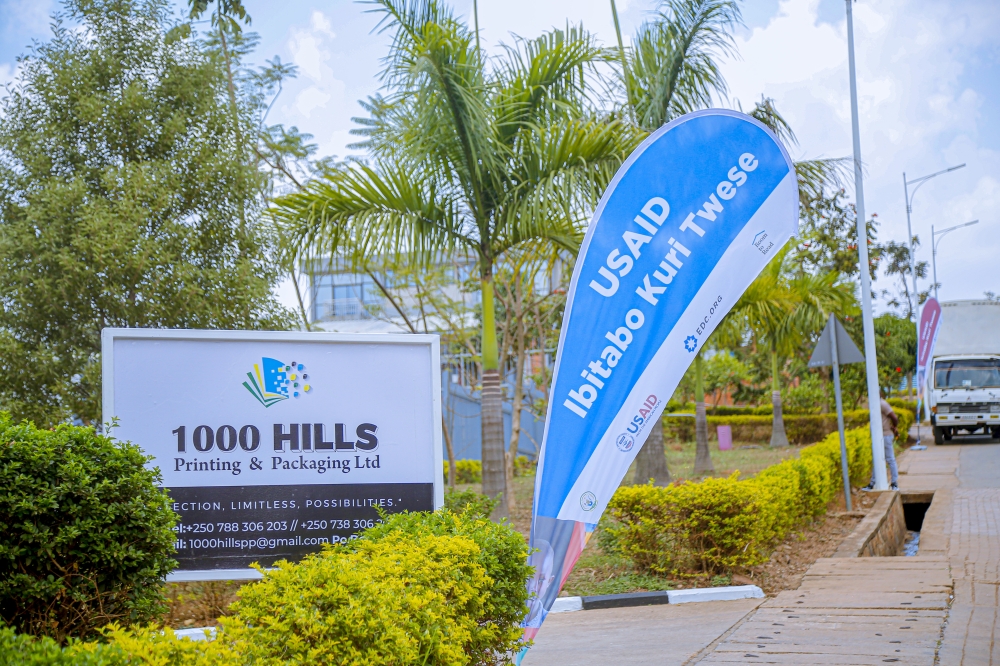A new $6 million project, titled “Ibitabo Kuri Twese” (loosely translated as “Books for Us All”), aims to improve access to quality and affordable textbooks for Rwandan students, officials announced.
Launched last week by the United States Agency for International Development (USAID) in partnership with the Ministry of Education, the three-year initiative will establish a printing house capable of producing 30,000 textbooks daily.
The Rwanda Education Board (REB) has previously relied on imports from Kenya, Uganda, India, and China to supply school textbooks. With local production underway, REB officials aim to provide at least one book per student; currently, an average of eight students share a single textbook.
The initiative is focused on improving the book-to-student ratio, particularly in primary schools. The new printing company, 1000 Hills Printing and Packaging, is located in the Kigali Special Economic Zone in Masoro and is expected to play a crucial role in meeting these targets.
“The new facility will enhance the local book supply chain and improve the livelihoods of those working in this sector,” said Martin Mawo, Chairperson of 1000 Hills Printing and Packaging. “This state-of-the-art complex will also create jobs for 50 permanent workers and 300 seasonal staff, contributing to Rwanda’s economy.”
The 2022-2023 Auditor General’s report highlighted significant textbook shortages, with some students sharing one book among five and others facing ratios as high as 48 students per textbook. The shortage was particularly severe in districts such as Ngoma, Kayonza, and Rubavu, where some subjects were taught without textbooks.
According to the Ministry of Education’s 2022/2023 Statistical Yearbook, the average book ratio was 2:1 in primary schools, 3:1 in lower secondary, and 5:1 in Teacher Training Colleges.
Nelson Mbarushimana, REB Director General, stated that the initiative will accelerate efforts to ensure all students nationwide have access to textbooks. A program to deliver books to parents is set to launch in the first quarter of the 2024/2025 school year.
“Parents will be able to purchase books included in the national curriculum, whether for public or private schools, at competitive prices. This project will help us ensure that every student has the necessary books,” Mbarushimana said.
In addition to enhancing production, the Books for All project will tackle broader challenges within Rwanda’s book market, including distribution and accessibility. New bookstores will be established in 10 districts, bringing quality, affordable books closer to communities. Discussions with financial institutions are also underway to support publishers and printing companies.
Fiston Mudacumura, a printing industry veteran with 15 years of experience, noted that meeting the government’s quality standards has been a significant challenge. “With this new project, we are better equipped to secure contracts and lower production costs,” he said.
“We aim to produce books that meet quality standards. By the end of this three-year program, we expect to have a stronger book market and a more efficient distribution system.”
The initiative will also include a Track & Trace system to allow the government to monitor textbook availability and distribution across the country, strengthening both public and private actors involved in book production and distribution.

